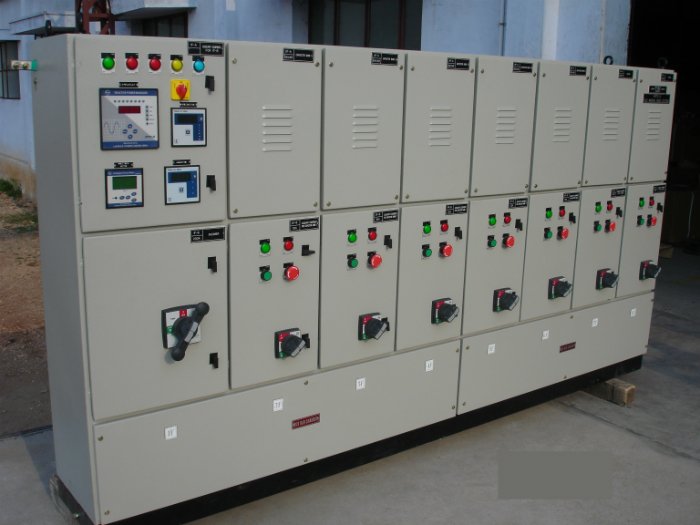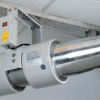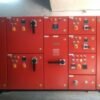PCC and MCC Panels – Complete Guide
When it comes to modern industries and commercial electrical systems, PCC (Power Control Center) Panels and MCC (Motor Control Center) Panels are the backbone of safe and efficient power distribution. Both panels play a critical role in controlling, monitoring, and protecting electrical equipment in factories, plants, and large buildings.
This guide will help you understand what PCC and MCC panels are, their components, differences, applications, and why they are important in today’s electrical systems.
What is a PCC Panel? (Power Control Center)
A PCC Panel (Power Control Center) is an electrical distribution panel that controls the main power supply of an entire system. It contains all the major switchgear, such as:
Air Circuit Breakers (ACB)
Miniature Circuit Breakers (MCB)
Moulded Case Circuit Breakers (MCCB)
Aluminium or Copper Busbars
The main circuit breaker is where the incoming power is connected. This breaker allows operators to isolate the entire panel when required for maintenance or emergency.
👉 The incoming side of the breaker always carries live power, which means high safety measures are necessary.
Key Features of PCC Panel
Voltage range: 440V to 800V AC
Handles high-tension (HT) power distribution
Equipped with protective devices for overload & short-circuit safety
Provides reliable power supply to MCC panels and other distribution boards
Applications of PCC Panel
Steel plants, refineries, chemical plants
Textile industries and manufacturing units
Commercial complexes and hospitals
Data centers and IT industries
What is an MCC Panel? (Motor Control Center)
A Motor Control Center (MCC Panel) is used to control multiple motors in an industry. Motors are the heart of most industries, and MCC panels ensure safe starting, stopping, and protection of motors.
MCC panels can be operated locally (manual) or from a remote location (automatic/PLC controlled).
Components of MCC Panel
DOL (Direct-On-Line) Starters
Star-Delta Starters
Variable Frequency Drives (VFDs)
Overload Relays
Motor Protection Circuit Breakers (MPCB)
Key Features of MCC Panel
Controls low-tension (LT) motors
Provides overload and fault protection
Can be designed for fixed or draw-out units
Ensures centralized motor control in industries
Applications of MCC Panel
Cement plants and steel industries
Water treatment plants and pumping stations
Food & beverage industries
Large-scale manufacturing industries
Difference Between PCC Panel and MCC Panel
| Feature | PCC Panel | MCC Panel |
|---|---|---|
| Full Form | Power Control Center | Motor Control Center |
| Power Type | High-Tension (HT) Power Distribution | Low-Tension (LT) Motor Control |
| Main Function | Distributes power to MCCs and other systems | Controls and protects motors |
| Voltage Range | 440V – 800V AC | 415V AC (LT) |
| Applications | Whole plant/system power distribution | Motor-driven equipment |
| Components | ACB, MCCB, Busbars, MCB | Starters, VFDs, Relays |
Advantages of PCC and MCC Panels
✅ Efficient Power Distribution – Ensures smooth and reliable supply of electricity
✅ Enhanced Safety – Protects motors, equipment, and workers from overload & short-circuits
✅ Flexibility – Can be customized according to industry needs
✅ Automation Ready – Modern MCC panels support PLC, SCADA, and remote monitoring
✅ Reduced Downtime – Fault isolation prevents full system failure
Why Choose Quality PCC & MCC Panels?
Selecting the right panel is crucial for industrial efficiency and safety. High-quality PCC and MCC panels not only improve power management but also increase the lifespan of motors and equipment.
Industries today require custom-designed panels that match their operations, comply with international safety standards (like IEC / IS standards), and support future automation needs.
Conclusion
Both PCC Panels and MCC Panels are essential parts of industrial electrical infrastructure. While PCC Panels manage the main incoming power distribution, MCC Panels take care of motor operations and safety. Together, they form a complete electrical control solution for industries.
If you are looking for reliable PCC & MCC Panels for your factory, commercial project, or industrial plant, always choose a trusted manufacturer who can deliver customized, durable, and standard-compliant solutions.




